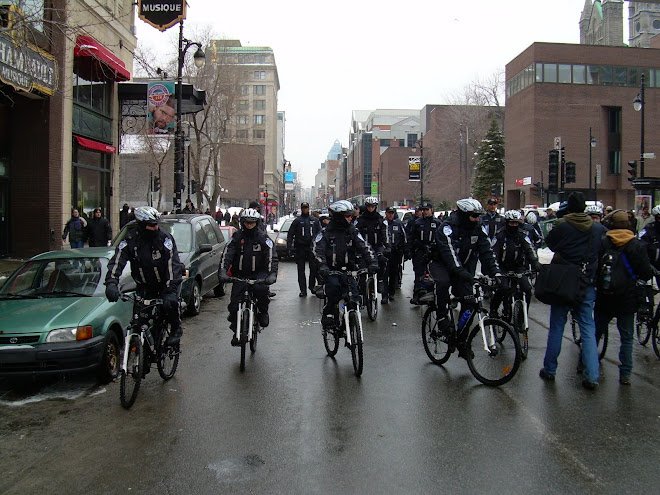"From 8 a.m. this morning (19.03) tens of comrades occupied a building on the corner of Patision Ave and Skaramaga Str (right between the Athens Polytechnic and the Economics University – trans). Works inside have already started; a soundsystem has been set up and the subversive Carmen sang by Maria Kallas (who, many claim, was born in this building) is echoing across the buzzing Patision Ave. There are many people in the building right now, increasing by the hour. You can come to the beautiful building and gaze at the sea from its rooftop.
The new Patision Commune is here. Strong, sober and uncrushable."
I had indicated from the outset at this blog that I am interested in looking at the tension between the construction of the Greek unrest as a localized, temporally bounded event and as a transnationally relevant and ongoing movement or simmering scenario that resurfaces in different guises. On the latter pole, a founding document, translated and published in the On the Greek Riots blog, from a new occupation effort adjacent to the Athens Polytechnic (launched 8am this morning, 19/3/2009 Athens time) explicitly rails against this foreclosure:"[...] the state, the bosses and all the mob that has a high interest for nothing to change no longer. From the moment when they managed to regroup they were anything but spectators. They claimed the return to normality by usng all means in their disposal. From riot police and para-statal thugs to the sociologists and the sensitive artists. From the established talk about extremists, gangs, saboteurs, greek-haters, all the way to the peaceful citizens’ claim to the right to celebrate their christmas. From the hypocritical self-criticism of the adults to their kids, to the arrest of 265 revolted and the incarceration of 65. They did whatever they could do, in other words, in order for December to turn into a “sad bracket” where in the end the extremists were punished and those who followed were admonished."
http://www.occupiedlondon.org/blog/2009/03/19/carrying-on-the-coming-revolt-is-already-everywhere/
The language used in connection with this new occupation is that of strong affect and collectivity, reminding me of Michel Maffesoli's (Time of the Tribes, 1996 - fr. orig. 1988) distinction between the 'social' and 'sociality.' The former is linked with modern forms, rationalized, individuating and functional, in which group are bound by contractual bonds - such as the social contract notion that structures the self-conception of the 'citizen.' The latter is post-modern, linking persons by their role in affectual 'tribes' (Maffesoli's tern is tribus). 'Tribalism' is used as a metaphor to capture the primeval everyday aspect of human connection he calls "the collective sensisbility which issues from the aesthetic form [and] results in an ethical sensibility."
Take the following:
“The biggest expectations lie ahead of us and we find ourselves in the joyous position of seeking ways to drift along with them"
Or:"[The December uprising] abolished, even if temporarily, gendered and spectacular roles since thousands of people managed to act as one body amidst events where what mattered was what was happening, not who was doing it."
[...]
"Reality continues to gain meaning from December’s revolt in an accelerating manner."
Perhaps Maffesoli's analysis of post-modern populations as marked by a resurgence of sociality and the 'tribal', along with a concern for 'proxemics' (that which concerns the spatially and experientially immediate, the quotidian) is manifested in a heightened form when groups take this kind of collective action against formal order. Immediacy and affect are highlighted in a number of recent social movement scholars' work (such as that of Kevin McDonald on anti-capitalist protesters in Australia and the US, the transition of logics from "solidarity to fluidarity" and "oneself as another", Graham St. John's on the 'carnivalesque', and Richard JF Day on the "new Situationism" in contemporary radical-left political dissent), and the kind of language used by these most recent communards is relatively widespread in certain sectors of the radical left - and bears some comparison with the original Situationist International (note the use of the concept of the spectacle, linked with Guy Debord) and its concern to break down barriers between art and everyday life in pursuit of a radical-left politics.
Perhaps this is an apt way to express such a message that seeks to evade the foreclosure of the event and register an immediacy of priority and strength as well as of collective identity and affective intensity. In any case, I will be watching closely...


No comments:
Post a Comment